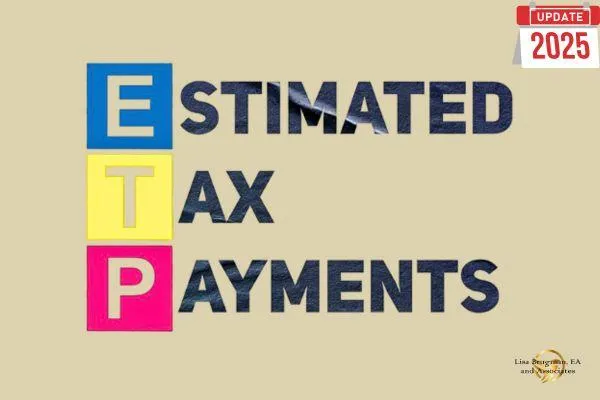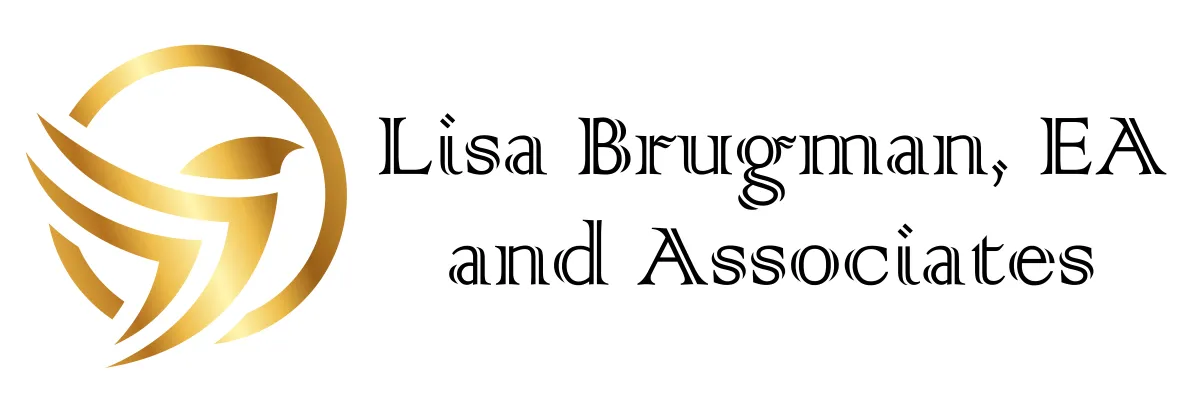BLOG

What Happens if You Missed a Quarterly Estimated Payment? 2025 Update
What Happens If You Miss a Quarterly Estimated Tax Payment?
Let’s start with the basics—why on earth do we have to make estimated tax payments in the first place? Well, in the eyes of the IRS, the U.S. tax system is like a giant vending machine: you pay as you go, not all at once when you're hungry (or in this case, when you're filing). If you wait until April to drop in all your coins, the IRS machine may slap you with a penalty—no snack for you.
This isn’t a huge deal for most W-2 employees whose taxes are already withheld automatically from their paychecks. But even they should keep an eye on their withholding. If it’s not enough—say your employer underestimated or you started a side hustle selling gourmet cupcakes—surprise! You could owe more than expected come tax time and get hit with an underpayment penalty.
A Word to the Self-Employed, Investors, and Side Hustlers
If you're self-employed, collecting rent, cashing in dividends, or making sweet capital gains from your meme stock picks, your income likely doesn’t have taxes automatically withheld. That means you are responsible for feeding the tax vending machine quarterly.
Think of it like making four mini tax returns throughout the year—April 15, June 15, September 15, and January 15 of the following year (dates may shift slightly if they fall on a weekend or holiday). Miss one of these “mini deadlines” and the IRS doesn't send you a reminder—they send you a bill.
Why Should I Care?
Great question. Let’s say you’re a freelancer who made $80,000 this year. You didn’t send a dime to the IRS until April, and now you owe $15,000 in taxes. Oof. That’s not a tax return—that’s a horror movie ending. Paying quarterly helps smooth out the pain and avoid a last-minute scramble (or having to auction off your Pokémon card collection).
And then there’s interest and penalties. As of October 1, 2023, the IRS increased the underpayment penalty interest rate from 7% to 8%. It's like being charged a high-interest loan by the least forgiving bank on Earth. This rate gets updated quarterly, so it might go higher if you push your luck.
What If You Miss a Payment?
Don’t panic. (Yet.)
First, make the missed payment as soon as possible—either online through the IRS "Make a Payment" page or by mail using the appropriate quarterly voucher. Late is better than never—kind of like returning a library book two months late. You’ll still get the stink-eye (in the form of penalties), but at least you're making it right.
You might also increase your withholding on your W-2 or retirement payments to offset a missed estimated payment. Yes, this feels like robbing Peter to pay Paul, but if it avoids a penalty, Peter won’t mind.
Can I Get the Penalty Waived?
Possibly! If your situation qualifies under one of the IRS’s “reasonable cause” excuses, you may be eligible for a waiver:
You or your spouse retired (age 62+) or became disabled in the last two years.
You had uneven income throughout the year (e.g., all your sales came during Q4).
You paid most of your tax early in the year rather than evenly.
To apply for a waiver, use Form 2210. Think of it as your formal apology note to the IRS—with receipts.
You Might Be Off the Hook If:
You owe less than $1,000 in total tax with your return, or
You paid at least 90% of this year’s tax liability, or
You paid 100% of last year’s tax (or 110% if your AGI was over $150,000).
Basically, if you got close enough, the IRS might let it slide—kind of like when you roll through a yellow light at the last second and don’t get pulled over. Not ideal, but no harm done.
Final Thoughts
Missing a quarterly estimated payment isn’t the end of the world—but it can cost you. Like ignoring a weird noise in your car, the longer you wait, the more expensive it gets. Catching up promptly, adjusting your withholdings, or applying for a waiver can soften the blow.
And if you're not quite sure how deep the rabbit hole goes, don't go it alone.
👉 Click here to schedule an appointment with Lisa Brugman, EA & Associates. We’ll help you ward off penalties, stay compliant, and maybe even save you a few bucks—so you can focus on growing your business instead of worrying about Uncle Sam tapping on your shoulder.
https://storage.googleapis.com/msgsndr/Y3wru9o2agtnTx66z5uZ/media/650d578315fdd01eb024474b.png
https://storage.googleapis.com/msgsndr/Y3wru9o2agtnTx66z5uZ/media/650d578215fdd056b424474a.jpeg






